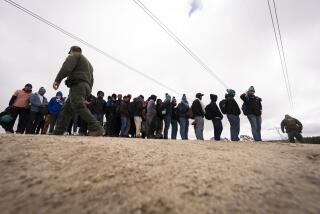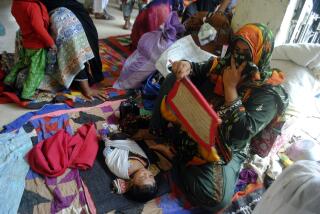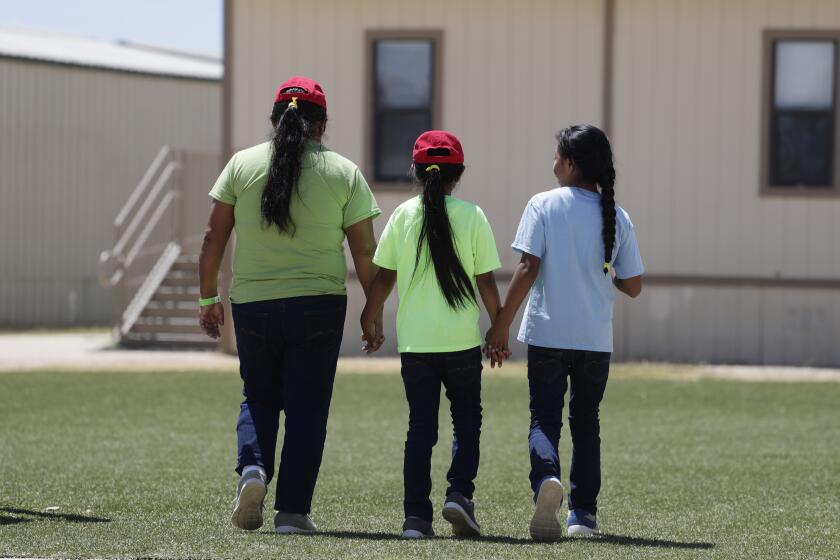“Refugee”
- Share via
Can we hide from the “refugee” fuss?
The Rev. Jesse Jackson says the word is racist. Rep. Diane Watson (D-Los Angeles) huffs that it’s almost a hate crime. President Bush declares that Hurricane Katrina’s dislocated aren’t refugees but Americans.
But “refugee” previously has been used to describe Americans fleeing natural disasters.
During the Southern California wildfires in 2003, a LexisNexis search shows, “refugee’ was used 100 times, 68% fewer than the 308 references to “evacuee.” During the Houston flood in 2001, “refugee” was used 21% more. The 1997 flood in Grand Forks, N.D., had 12% more references to “refugee.” During Hurricane Andrew in 1992, there were 1% fewer uses of “refugee.”
And Katrina? As of Thursday, “refugee” was used 13% fewer times than “evacuee.” We hear “refugee” more often because it is a worse disaster.
Webster’s New World College Dictionary says refugees can flee homes, and the New Oxford American Dictionary says they may be driven out by disasters.
Substitutes for “refugee” don’t cut it. The United Nations’ “internally displaced persons” sounds like a euphemism for hernia sufferers. “Victims” can be alive or dead. Those who lived through Katrina will be its “survivors” forever. And for refugees to be “evacuees,” someone needs to evacuate them.
That Americans became refugees is offensive, but not because of the word.
— Brendan Buhler
More to Read
Sign up for Essential California
The most important California stories and recommendations in your inbox every morning.
You may occasionally receive promotional content from the Los Angeles Times.










